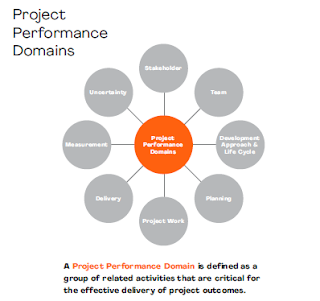Project Management eight performance domains
The Project Management Professional (PMP) certification, administered by the Project Management Institute (PMI), encompasses a comprehensive examination of project management competencies across eight performance domains. These domains serve as the foundation for evaluating a project manager's skills and knowledge. Initiating, the first domain, involves defining the project at a broad level and obtaining approval to move forward. This includes developing a project charter, identifying stakeholders, and conducting a high-level risk assessment. In the Planning domain, project managers delve into detailed project planning, covering aspects like scope definition, scheduling, cost estimation, risk management, and resource planning. This phase is crucial for establishing a roadmap that guides the project throughout its lifecycle.
Executing, the third domain, focuses on turning the project plan into action. Project managers must coordinate people and resources, manage stakeholder expectations, and ensure effective communication. Monitoring and Controlling, the fourth domain, involves tracking, reviewing, and regulating the progress and performance of the project. This domain encompasses processes like integrated change control, scope verification, and performance measurement, ensuring that the project stays on course and deviations are promptly addressed. The domains of Closing and Maturity, the last two, involve finalizing all project activities and ensuring a smooth transition to project closure, including obtaining formal acceptance of deliverables, releasing project resources, and conducting a post-project review for lessons learned. Each of these performance domains is integral to the PMP certification, collectively ensuring that certified professionals possess a well-rounded skill set to successfully manage projects across industries.


Comments